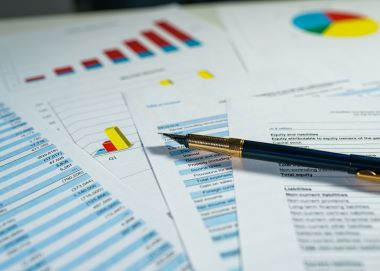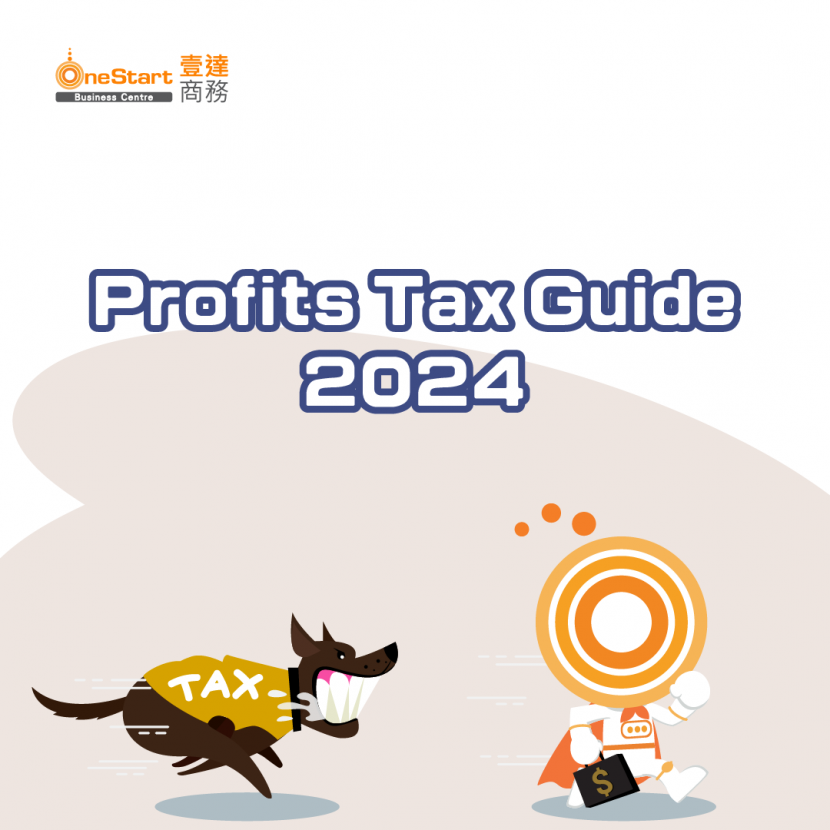Related Article:
What is the Difference between Accounting and Auditing? How to Distinguish between Their Duties?
What to Do If You Make Mistakes on Your Tax Return? How to Object to the Assessment?
Table of contents |
Hong Kong's business-friendly tax system is one of the reasons why this place attracted many entrepreneurs and business. It is crucial for entrepreneurs to have a good understanding of Hong Kong's tax regulations. Lack knowledge of the corporate tax filing process can lead to penalties and legal issues. This article provides a comprehensive explanation of the concept, scope, filing methods, and important considerations for profits tax in Hong Kong.

What is Profits Tax?
Profits tax in Hong Kong is a tax based on the actual profits calculated within the financial year. Any entity that operates a business or provides services in Hong Kong and earns profits from Hong Kong is required to pay profits tax.
Profits Tax Rates for Companies
Hong Kong profits tax adopts a two-tiered profits tax rate system, with different tax rates for the first HKD 2 million of assessable profits and the portion exceeding HKD 2 million. There are also different profits tax rates for limited companies and sole proprietorships/partnerships.
Profits Tax Rates for Limited Companies
- The profits tax rate for the first HKD 2 million is 8.25%.
- The profits tax rate for the remaining profits is the standard rate of 16.5%.
Profits Tax Rates for Unincorporated entities
- The profits tax rate for the first HKD 2 million is 7.5%.
- The profits tax rate for the remaining profits is the standard rate of 15%.
Tax Filing for Hong Kong Companies
Initial Tax Filing for New Companies
Newly incorporated companies typically receive their first profits tax return from 18 months after incorporation. The tax return and supporting documents should be submitted to the department within 3 months from the date of issue.
Limited Companies/Unlimited Companies
The Inland Revenue Department issues profits tax returns to all companies on the first working day of April each year. The tax return should be submitted to the department within 1 month specified on the return form.
*The tax filing for unlimited companies varies:
Sole proprietorships usually report their profits in the individual tax return of the owner. If a profits tax return is received from the Inland Revenue Department, it should be completed and returned within the specified deadline. If the annual income of the sole proprietorship exceeds HKD 2 million, a profit and loss statement and balance sheet should also be submitted to the department.
The profits of a partnership do not need to be reported on individual tax returns, but the partners need to declare their ownership of the partnership in their individual tax returns. The Inland Revenue Department will send a separate profits tax return for the partnership. If the annual income of the partnership exceeds HKD 2 million, a profit and loss statement and balance sheet should also be submitted to the department.
Extension for Tax Return Submission
By appointing a tax representative, companies can extend the deadline for submitting profits tax returns. The extension can be made to the following dates based on the deadline indicated on the first page of the tax return:
| Tax Return Code | Accounting Date | Extension |
| N Code | April 1 to November 30 | Cannot be Extended |
| D Code | December 1 to December 31 | August 15 |
| M Code | January 1 to March 31 | following November 15 |
| M Code (Losses) | January 1 to March 31 | following January 31 |
Profit Tax Filing Documents

Types of Profit Tax Returns
Corporation (BIR51)
This category includes companies with legal entities such as limited companies. Inactive companies are also required to provide required supporting documents.
Non-Corporate Entity (BIR52)
This category applies to partnership businesses. Even if a company changes from a partnership to a sole proprietorship or vice versa, it is still required to fill out the BIR52 to record the annual profits and losses. If foreign currencies are involved, they should be converted to Hong Kong dollars using the annual average exchange rate.
Non-resident person (BIR54)
This category applies to non-Hong Kong residents who operate businesses or provide services in Hong Kong and are subject to taxation. Offshore companies established by Hong Kong residents in other distracts are not included in this category.
Supporting Documents
In addition to the profit tax return form, companies are required to submit the following supporting documents:
- Financial statements
- Profit and loss statements
- Profit tax return form
- Audit report (applicable to limited companies)
- Other relevant documents and information
According to the rules, the financial statements of Hong Kong limited companies for profit tax filing must be audited by a third-party auditor and provide a valid audit report. The qualified auditor must be a registered Hong Kong Certified Public Accountant (CPA), and under the supervision of Accounting and Financial Reporting Council (AFRC). OneStart has a team of professional registered accountants with many years of experience that you can trust.
Although unlimited companies do not require formal audit reports, they still need to keep daily business records and handle accounting work to prepare financial statements, including general ledgers, profit and loss statements, and balance sheets. Hiring a professional accounting team will effectively improve the quality and efficiency of the process, allowing you to focus on business development.
Profit Tax Deductions in Hong Kong
In Hong Kong, companies can deduct various expenses incurred in the process of earning assessable profits. Common deductible expenses for companies include:
- General expenses (such as employee expenses, company properties, company cars, etc.)
- Renovation expenses for buildings
- Purchase of industrial equipment for manufacturing, as well as computer hardware and software
- Expenditure on environmental facilities
- Exempted amounts for commercial and industrial buildings and structures
- Machinery and industrial equipment
- Donations (recognized charitable institutions or trusts)
If a company has no profit and incurs losses, the taxpayer can offset the losses of that year against the profits of the following year. If there is still a remaining loss balance after offsetting, it can be carried forward to offset against profits in the next years.
Consequences of Late Submission of Profit Tax Returns
Failure to file profit tax returns on time may result in a penalty up to HKD 10,000 and the imposition of a tax equal to three times the amount of tax unpaid.

Conclusion
Understanding these tax regulations can help novice entrepreneurs avoid legal issues and reduce tax expenses. To efficiently handle corporate tax matters, it is important to keep proper business records and hire a professional accounting team to handle the accounting work.
OneStart Business Centre has a team of experienced accountants trusted by many clients. Many people choose to consolidate accounting and company secretarial services under one organization to increase efficiency. OneStart provides one-stop business support. If you want to know more about our services, please call 3575 6888 or WhatsApp OneStart consultants for more information.
Click to WhatsApp OneStart:
Know More About Our Services:
 |
 |
 |













